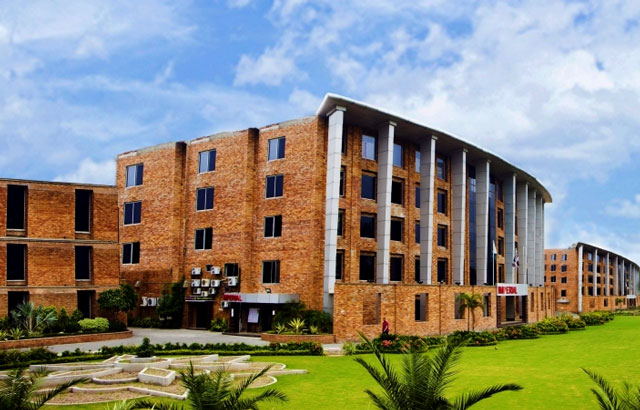
Dastagir is not alone in passing through this agonising experience. Hundreds of other students are also running from pillar to post to legitimise their degrees. But there is little the provinces, and for that matter the HEC, can do because of several legal, territorial limitations.
“Nobody is telling us what we have to do next and what future holds for us,” Dastagir said.
The HEC recently announced banning admissions in the Global Institute Lahore and any of its campuses – including The Imperial College of Business Studies, Lahore – after it found “serious irregularities and mismanagement in their academic affairs”.
Heads of varsities discuss ways to end intolerance, radicalisation in higher education
Similarly it also banned admissions and attestation of degrees of the University of Chakwal which was previously functioning in the name of Horizon College.
The college was issued a NOC by the HEC in 2015 but did not get its charter and started enrolling students with a new name which alerted the district government that informed the HEC and the higher education body in Punjab.
As per the HEC rules, the university has to seek a non-objection certificate (NOC) from the HEC for the establishment of a university. The NOC is considered an initial go-ahead to seek the charter from the respective provincial assembly. Similarly, every public sector university has to take NOC from the HEC or the respective province for the establishment of sub-campus(es).
After the HEC’s decision to ban all sub-campuses of the Global Institute because they were established without obtaining the NOC, the management of the sub-campus of Dastagir opted to seek affiliation with another university in Punjab, putting students and parents in an uncertain situation.
VCs appointment case: CCI’s role in education standards draws mixed reaction
Last year, the HEC also banned admissions in Al-Khair University Azad Kashmir, including attestation and verification of degrees after the HEC found hundreds of degrees being issued without proper record raising fears of fake enrolments.
As the education sector becomes a booming business so is the rise of illegal universities and colleges. The HEC has been issuing public notices in newspapers, warning parents and students against taking admissions at unapproved universities but still about 155 varsities and colleges are functioning illegally.
The names and addresses of these institutes have been placed on the HEC’s portal for the information of the general public but the list keeps growing – from 140 in 2015.
In Punjab there are 102 illegal universities and colleges – the highest number – followed by 36 in Sindh, 11 in Khyber-Pakhtunkhwa, three each in AJK and Islamabad.
Futures at stake: VU enrolls 4,500 students without NoC
The majority of sub-campuses are found violating the rules, with insufficient faculty and poor infrastructure while many institutes do not meet the laboratory, faculty and building requirements.
The majority of campuses and colleges have been running MS and MPhil programmes without having fulfilled the requirements.
The rules require at least two relevant full-time PhD faculty members in the department to start MPhil, MS, MBA programmes while there should be at least three relevant full-time PhD faculty members in a department to launch the PhD programme.
An official of the HEC told The Express Tribune that more than half of 155 illegal institutes were colleges and all were fake because they were functioning without affiliation, NOC or any legal ground.
HEC calls meeting to discuss campus violence
The disinformation is also clearly being fed to students by those institutes, as the Imperial College has termed the HEC’s decision on its website as part of up-gradation while later told The Express Tribune that “no improvement in governance and quality assurance standards set by the HEC [have been made even] after two visits [of the officials concerned]”.
Imran Haider, an official of the university could not clarify why such information was not shared on the website. “Even if we have not shared [the information] on the website, students must have [known] what exactly [has] happened, and we are working to meet the HEC criteria,” he said.
Officials from the Global Institute refused to comment on the issue and hung up the telephone when asked for their version on the ban and the future course of action.
Currently, four proposals of universities and three campuses are under process at the HEC for NOC.
HEC defends move to end 2-year BA
The HEC has been reluctant to take action against those illegal institutes, as they have been functioning with impunity while the provinces, especially Punjab and Sindh, after formation of provincial higher education bodies also do not seem to pay much heed to the HEC’s correspondence.
Many institutes have denied that they managed to seek the NOC from the respective provincial bodies despite the several loopholes found by the HEC. Besides, the HEC is also reluctant to publish names of all illegal institutes in the country out of fear that there were many that have yet to come in their notice and notifying the available list would exonerate anonymous ones.

















COMMENTS
Comments are moderated and generally will be posted if they are on-topic and not abusive.
For more information, please see our Comments FAQ